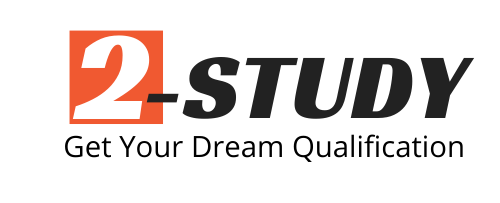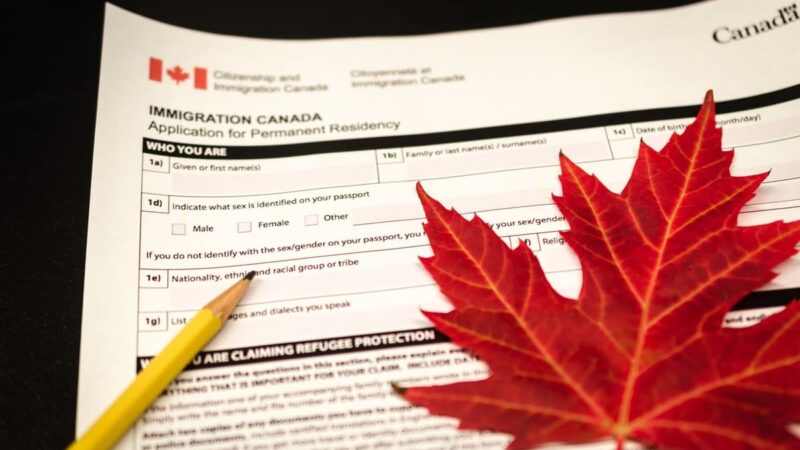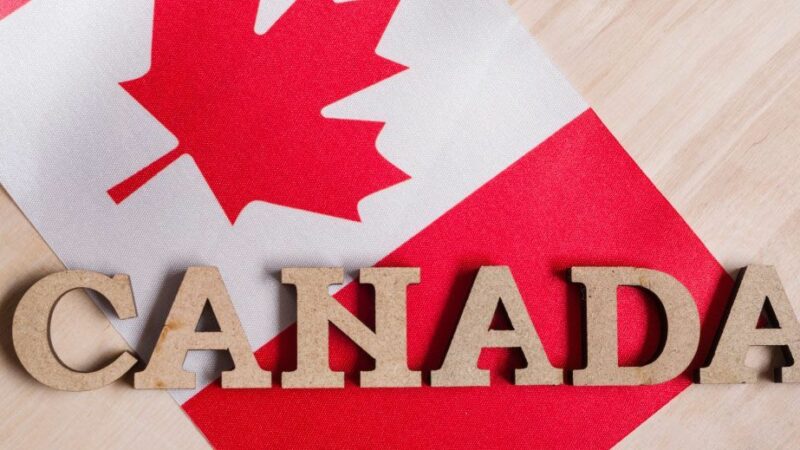How to find your first job in Canada for new immigrants?

Is it difficult to find your first job in Canada? The answer is No. You can follow these professional tips to find your first job in Canada within the first month.
A new immigrant settling in a new country is very challenging and they need to face a lot of issues such as language barriers, employment opportunities, housing, cultural reference, and many more. However, at the same time Canada is also called the land of opportunities and this country has a range of features that can help to make your transition smoother.
Recommended:
Table of Content
Look for a job before immigration or after landing?
Well, you may ask whether it’s reasonable to start a job hunt before you come to Canada. Of course, you should try.
There’s always a chance that you were one of the hundreds of candidates abroad who finally would manage to secure a job in Canada before coming. But remember only a small percentage of candidates find a job while being outside of Canada.
In fact, that is technically less than one percent of those who are managed to secure the job before arrival. Mostly these are IT specialists such as technical specialists, highly specialized engineers who already work up relationships with employers in Canada. But usually, it’s highly difficult to find a job before you arrived.
Well, another category of candidates who succeed in remote jobs has close friends and relatives in Canada. These wonderful friends and relatives would go and find a job for you.
Now if you do not belong to any of those categories, you have to look for your first job in Canada? All alright here’s the reality
“Only a tiny portion of all immigrant find their Canadian job before they immigrate”
First Canadian Experience
99% of people would be able to secure at least the first job in Canada within three months after arrival.
It’s highly possible. It is highly doable. You just have to follow the initial instructions, the initial ideas that I will be sharing with you today. So let me tell you what Canadian employers want to see when it comes to hiring.
This is what we usually call FCE, which is the first Canadian experience. Here’s the dilemma any employer wishes to hire an employee with some work experience in Canada. But at the same time when you’re a newcomer, you don’t have Canadian experience.
So what should you do and how to cope with that.
I would say first of all get used to the fact that your first position in Canada will not be of the same level as your current job position.
It’s cold, it’s harsh but it’s true. In other words, you were say a manager, senior developer, a tax accountant whoever you are. Your first job will most likely be of a much lower responsibility level or even in another field. Again it’s the first job, swallow it.
Volunteering in Canada
One effective way of obtaining that First Canadian experience is volunteering. It’s very popular in Canada.
Go to the YMCA because they virtually exist in every city and in every town in Canada. They provide multiple volunteering opportunities.
You can also check Volunteer.ca or GoVolunteer.ca to find volunteering job in Canada.
An employee with previous experience in Canada has a good understanding of the Canadian approach to work. Otherwise, we’ll waste time shaping new employees to meet common Canadian values.
Whenever people are looking at your resume, they want to see Canadian experience or volunteering experience or at least something you were doing in this country.
However, it’s absolutely no shame to start at a lower level. Just be mindful, you have to start somewhere. Okay, that’s the initial step.
Educational Credentials
Now another question which is commonly asked. The question is related to diplomas and certificates.
How to translate them, present them to future employers in Canada.
Fortunately, the answer is quite simple Canadian employers in 99% of cases do not give a dime about your diplomas at all unless you get in Canada. You have a Canadian diploma from the highly praised University University of Toronto or University of Waterloo etc.
Mostly employer in Canada usually cares most about what you can do rather than about university you graduated from. And be prepared to demonstrate good job antics, excellent knowledge, and skills.
That’s what I see virtually every single day. I see resumes full of those credentials, certificates, abbreviations. They have no value. What employers are looking for is job experience.
When you’re approaching your first job in Canada and you want to present yourself in a good shade. I would strongly recommend putting those credentials at the bottom of your resume. Don’t really expect that your diploma will impress an employer. We have to do is just to include information about your education in your resume.
In any case, don’t leave your diplomas behind when you come to Canada. If you decide to continue your education in Canada or if you decide to develop professionally in Canada, you will need them.
Survival job
Many newcomers in Canada go through what is commonly called a survival job. As the name implies it’s a sort of employment merely for the purpose of maintaining a minimum budget. Examples of survival jobs are janitor, labor, helper, sales, delivery, mover, and so on.
So why people go to such a job? Because such a job is easy to find. And during the first months in Canada, it allows people to sustain themselves. It is also a way to receive that first Canadian experience and to look for a more decent job without fear of personal bankruptcy.
Another misconception among the newcomers in Canada is that survival job you can find online by browsing classifieds at home. And calling numbers advertised on online job portals or sending out resumes and waiting for a response.
How to find survival job?
When you’re looking for a survival job please for God’s sake forget about the online ads. Go outside and explore your neighborhood chances are that you would see ‘wanted’ signs. This sign simply means that they are hiring for the low-skilled positions and they’re hiring right now. Look at the signs on doors of convenience stores, dry cleaners, or the small businesses around.
Don’t forget to pay a visit to fast food outlets like McDonald’s, Tim Hortons, Harvest, Burger King, and many others. Fast food is pretty much at every corner and many of them are hiring right now. They always hire. Don’t hesitate to come in and ask. You can trust me you’re proactive approach would be highly rewarded.
Most of the newcomers in need of a survival job get hired in Canada within a week or two. The condition is that they do not just sit at home browsing online job portals.
10+ tips to get your first job in Canada

Now you already got a survival job you’ve got your peace of mind now. It’s time to look for something more serious. As said earlier be prepared to start from a lower level in Canada
You will see a temporary downshift in your career. Sometimes it could be serious downshift for up to one year. But again don’t worry it’s not forever.
Here are the 5 tips to get your first job in Canada.
Talk to everyone
Let your environment know that you’re looking for a new job. It’s well known but still, I see many people not aware of it or not using all these resources.
20% of the Canadian labor market is exposed by job search portals like classifieds etc. An estimated 80% of so-called hidden job market positions are never advertised to the general public.
80% is a huge market and the only way to get a foothold in there is to let that hidden market know that you’re a job seeker. That’s why you need to talk to everyone. Sooner or later someone would hear that there’s an opening and would recommend it to you.
You have to do a lot of networking. This can be done by various networking events. There are lots of events that are free and takes place in every city. You can go to those events to interact with various people in your field.
Talk to people and tell them that you are looking for a job. Share your contact details as well. These things will definitely help you get your job faster.
Canadian format resume and cover letter: Update your resume
Do not forget to update your resume. One of the most common mistakes is that I see outdated resumes.
It is important to change your resume format to the Canadian style. This includes both a resume and a cover letter. Different countries have different formats or requirements in their job application process. But employees in Canada are specific about the style or format of the resume that they require.
Within the Canadian style of the format, you never list your salary, picture, or family information, or any kind of personal details. Another thing which is very important is don’t use the same resume for all the job applications.
Make sure you customize your resume for each and every job; matching their requirements. Basically, the keywords in the job requirements should be in the resume as well. So that your resume is picked up by the automatic tracking system
Internal transfer within the company to the Canadian location
If you are working in a multinational company, try an internal transfer.
For example, if you are working in a company like IBM, Accenture, or some kind of IT or a multinational company. They must be having an office in Canada. Try talking to your manager or higher-ups to see if they can transfer you to the Canadian office. If you already have your PR this might be the easiest way to get settled in Canada with a job offer.
Although the salary sometimes might not be on par with the Canadian standards. But you start getting your Canadian experience right away. So don’t hesitate to ask your manager or higher-ups about this option. Sometimes you might get it easily and in other cases, you might not. But better to ask than not to ask.
Local virtual Canadian phone number and local address
The next technique is to get a local number. It can be either virtual or you can also get a fixed local number such as magicJack. If you google search you would be able to get a virtual local number online.
Another thing I would recommend is getting a Canadian local address. You can get it either from your friends, relatives so that you can put that in your resume. This will also help you get your job interview faster.
Create a professional LinkedIn account
Another important technique to get your first job in Canada is to have a professional, refined LinkedIn account. So what should you do?
If you don’t have a LinkedIn account create a LinkedIn account. And update the LinkedIn account to make sure whatever matters in your resume matches in the LinkedIn account. Update with all the skills or professional experience and all the projects that you did.
Pro tip: Make sure you change your address or the location on the LinkedIn profile to a Canadian address.
It is because Recruiters looking for candidates on LinkedIn favor local candidates. So make sure the location within your LinkedIn account has been changed to the Canadian location.
Also, make sure your LinkedIn account has no grammar or careless mistakes. Remember that recruiters would want to see a professional level of communication before they can consider you for a job.
Try to get some endorsements or recommendations from your past colleagues or managers about your work. It will reflect what you have done so far in your career.
Search job on Indeed.ca
Now you can start searching for jobs on various job search sites. The most famous is Indeed.ca. What Indeed does?
It gets the jobs from various sites including monster or any other job site, and then mash it up and give you the search results. In this way, you don’t have to go to each and every job search site.
Indeed.ca is the best for searching the jobs. It also collects the job requirements from individual employers’ websites.
Register with Pre-arrival Services
Another important thing that you should be doing is registering for free pre-arrival programs in Canada. Government funds lots of organizations for helping immigrants.
Pre-arrival services can help you prepare for your move to Canada. They help to get your education, work experience, and credentials recognized in Canada. And connect with employers to find you a job. Here is the list of pre-arrival services in Canada:
These are all free services so feel free to check them out. They also offer free programs to help you find work faster. You can register online for pre-arrival employment services like JVs can prep program or next stop Canada.
Pre-arrival services connect skilled newcomer professionals from all around the world to an employment specialist who will be supporting them in navigating the Canadian job market.
Go to your local Immigrant serving organizations
When you come to Canada, the first thing you need to do is; you have to go to your local immigrant-serving organizations. There are lots of organizations in each city. The immigrant-serving organization in Canada help you look for a job.
In case if you need more language help, they get you a language assessment. And they register you for free language classes. They also help you find a place to live in. Basically, they help you with the initial settlement.
The first thing you have to do is register with them and then they will guide you with all the necessary settlement steps. When you register with them they will be helping you.
They will tie you with a mentor or somebody would be helping you in your job search. They will help you with the resume and cover letter. They will also make sure they connect you with some employers.
Get your public library card
Go to your local library or your community library which is close to your place.
There are lots of free information, free classes, free courses offered by libraries. And they also help you with searching for a job. So go to your local library and talk to your librarian and set a library account. Library account in most of the cities in Canada is free.
In this way, you will be having access to books, classes and there are lots of events in the library. If you don’t have a computer, you can use computers in the library to search for jobs.
Get your credentials assessed in Canada
This is an important step that you should take before you start your job search. Get your credentials assessed in Canada as well. You did it for the PR but you have to do it again.
There are two types of jobs in Canada; regulated jobs and the other one is called non-regulated jobs. Regulated jobs are controlled by provincial-territorial and sometimes federal laws. So they are governed by a regulatory body or apprenticeship Authority. They include jobs such as architects, plumbers, engineers, etc.
Regulated jobs are regulated to protect public health and safety and make sure people working in these jobs are very well qualified. About 20 percent of the jobs in Canada have regulated jobs.
What you have to do to work in a regulated job in Canada?
You have to get a license or a certificate to work in a particular province. Provinces in Canada gave different regulatory bodies. You have to be registered with the regulatory body for your job in the province where you want to work.
Different regulated jobs have different requirements for getting a license or a certificate.
Look for bridging programs
In certain cases, you might need to look for bridging programs related to the job. The laws are quite different from where you came from to one in Canada.
Bridging programs basically help internationally trained professionals and tradespeople to work in the same field in Canada as their previous jobs. It includes courses, education, and skill assessments. They provide practical or work experience and train you for the credential exams.
These are bridging programs that need to be done before you start your job search. Your immigrant services organization and local universities can help you find bridging programs. For example,
- the Canadian Payroll Association provides bridging programs for payroll administrators.
- HR associations CPA chart will be able to provide bridging programs for HR professionals.
Beware of job scams
There’s one important thing every newcomer should know you should. Never pay anyone in Canada for a promise to find a job for you. Do not fall into that trap.
All your placement agencies receive compensation from employers not from candidates and not from employees. It is the law. You cannot give anyone even a dollar for the service of finding a job for you.
If you run into someone promising you an employment contract for a fee turn around and go away. It is a 100% scam.


![Coursera Vs Pluralsight: Which is Best For You? [2024 Updates]](https://www.2-study.com/wp-content/webpc-passthru.php?src=https://www.2-study.com/wp-content/uploads/2023/12/Coursera-Vs-Pluralsight-800x450.jpg&nocache=1)
![Masterclass vs Skillshare: Here are the Key Differences [2024 Update]](https://www.2-study.com/wp-content/webpc-passthru.php?src=https://www.2-study.com/wp-content/uploads/2023/12/Masterclass-vs-Skillshare-800x450.jpg&nocache=1)


